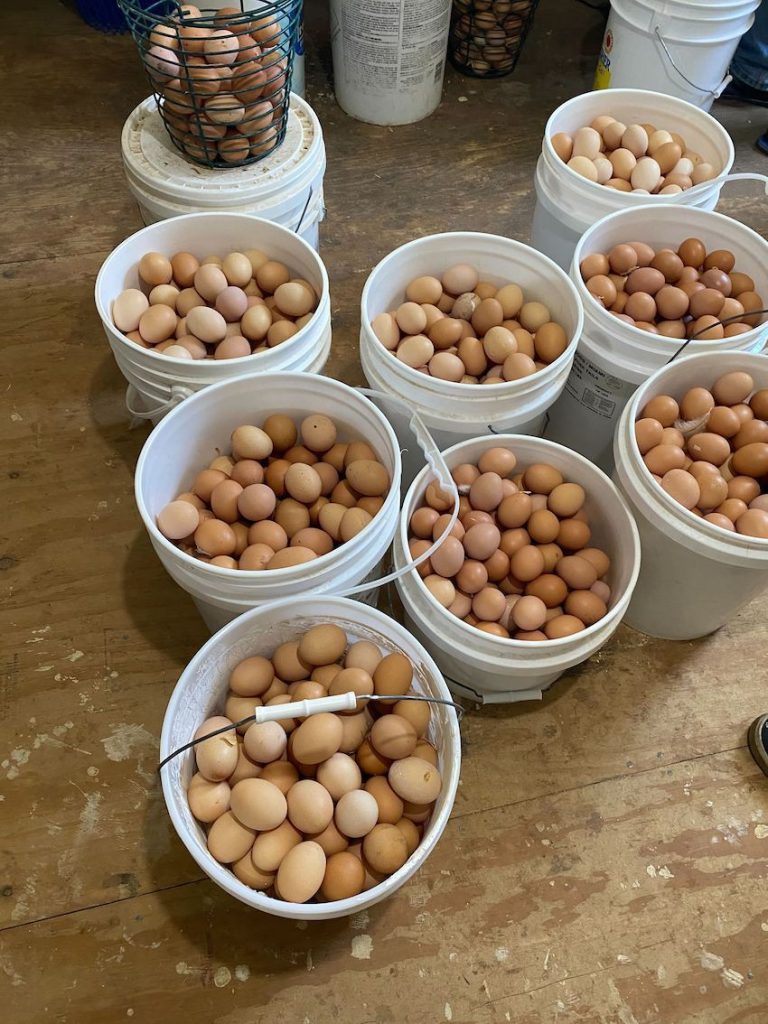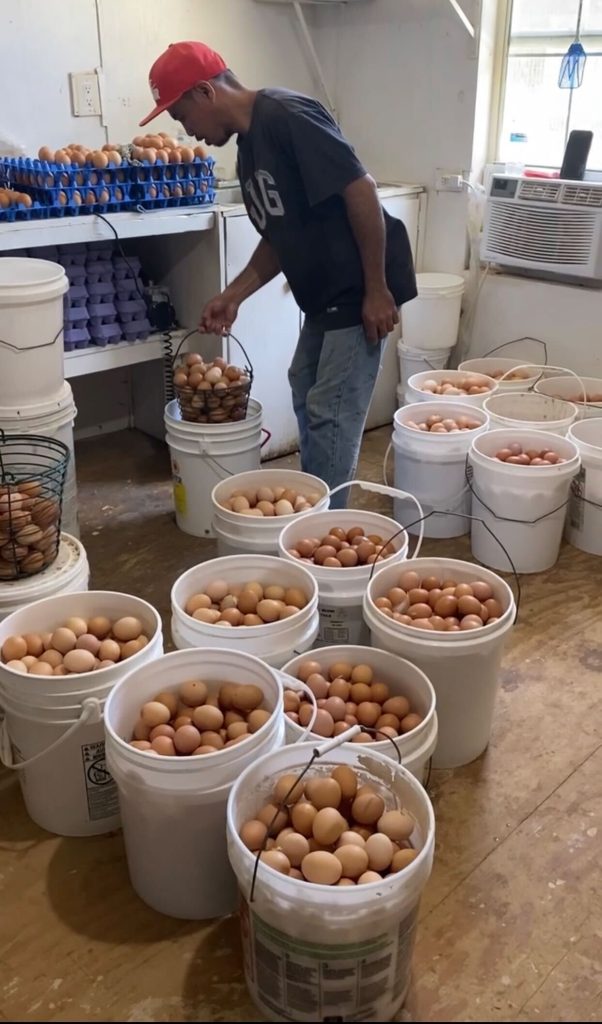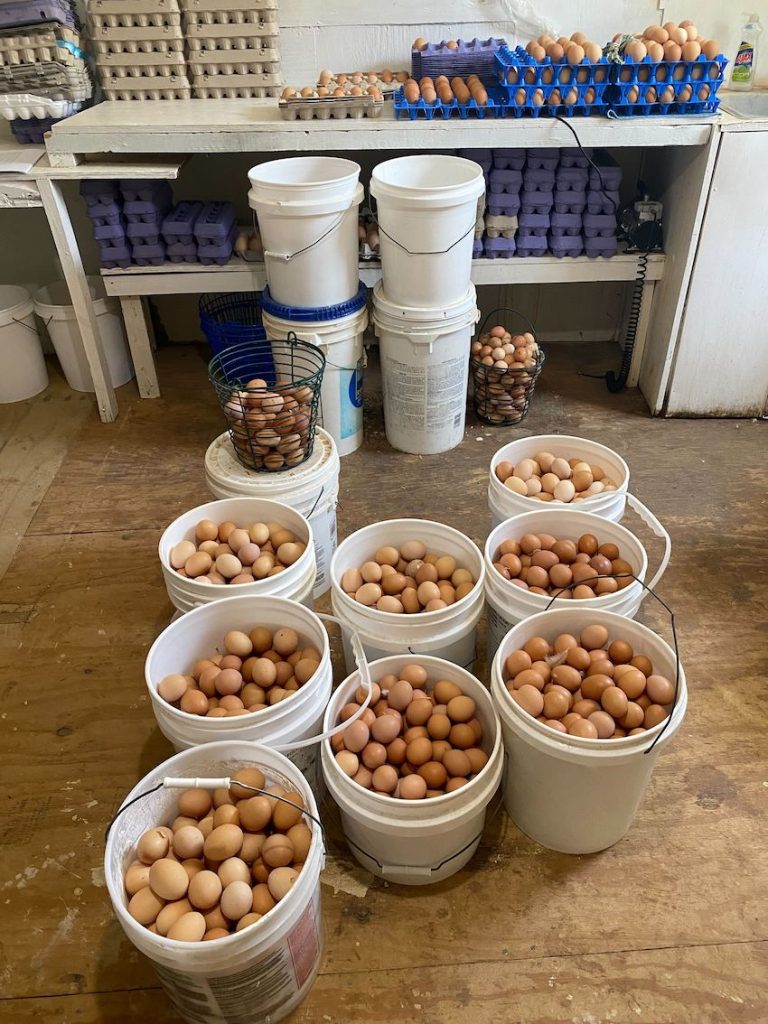National Egg Strategy moves into operational mode to increase egg production



The National Egg Strategy (NEST), a key component of Government’s plan to address the development of the domestic egg sector in the Cayman Islands, has moved into operational mode to increase the safety and quality of local egg production.
Minister for Planning, Agriculture, Housing and Infrastructure, Hon. Jay Ebanks whose team is leading the initiative said the aim of NEST was to increase market share of local eggs, improve market access for all local table egg producers and certify egg farms across the Islands.
“Our vision is for a food and nutrition-secure Cayman Islands and a key part of making it a reality is to strengthen and grow our domestic supply of table eggs,” he said.
“After two years of significant progress in laying the foundation for a National Egg Strategy, we are ready to begin operating this vital programme. Our goal is to improve the market share of local egg producers by 40% in 4 years, and a 100% increase in egg production over the same period.
“The Cayman Islands Government has made the necessary budgetary allowance to support this important national project as it is key to our broad outcomes to enhance competitiveness while meeting international standards and future proofing us to increase resiliency,” Minister Jay Ebanks said.


The Ministry and the Department of Agriculture developed the comprehensive National Egg Strategy two years ago to support and upgrade production facilities and to implement a government-backed safety and quality certification programme for all egg farmers. The NEST moved into an implementation phase last year, with some important accomplishments on the road to achieving the goal of the programme:
- For the first time ever, food safety quality standards for egg layers’ operations were created (the Cayman Islands Poultry Standards – Layer Operations 2022); an upgraded 2023 version will be published in the third quarter of 2023. This was achieved with the support of our local egg producers, Cayman Islands supermarkets and other stakeholders;
- A pilot group to test these standards was established with sixteen commercial farmers, whose farms are currently producing over 60% of local table egg production (a minimum of 200 birds each, representing a total of approximately 105,000 dozens of eggs annually). The ultimate aim is to certify all egg producers across the Cayman Islands;
- A poultry expert was recruited and onboarded to contribute to the formal documentation/procedures and to guide the farmers and support the expansion of this initiative to improve local egg safety and quality assurance thereby increasing consumer confidence in domestically-produced eggs;
- New egg cartons were designed and purchased to enable the national egg quality certification components of the programme;
- A part of the overall strategy is to improve the production systems used in local egg production. One of the key steps taken is the Ministry collaborating with the Public Works Department to produce a poultry house model that can be used by egg producers to start or improve their operations;
- The Ministry purchased several key pieces of equipment which will be provided to the pilot group farmers to help meet the standards and market requirement for the National Egg Strategy. There are other types of support that will be provided to the pilot group members and the wider egg producers as the Ministry seeks to develop the local egg industry.


“Thanks to the cooperation and support of our local egg producers, and for the hard work by teams at the Ministry, the Department of Agriculture, and the NEST Technical and Advisory Committees,” Minister Jay Ebanks said.
“The National Egg Strategy is proving to be one of the most visible examples of our efforts to strengthen and modernise Cayman’s agricultural sector. The NEST is in full operational mode and we look forward to more and more Caymanians showing their confidence in the quality of this locally-developed food by choosing Caymanian certified eggs over imports.”
IMAGES: Eggs from Lookout Farm, one of the participating farms of the pilot programme





